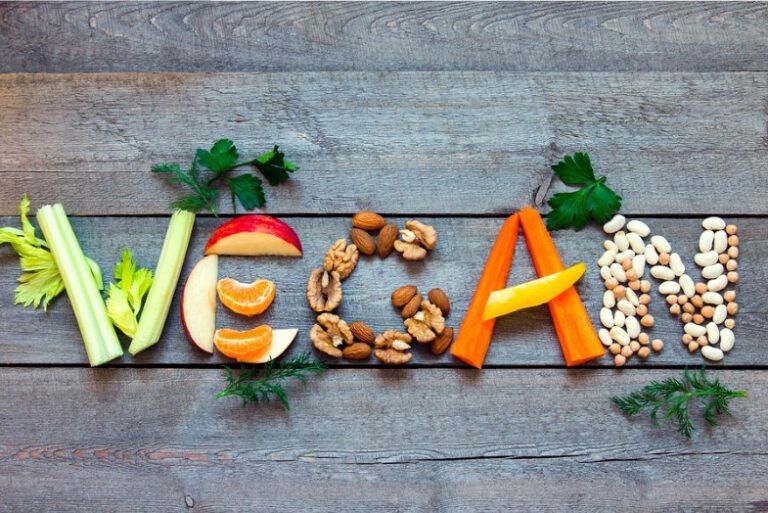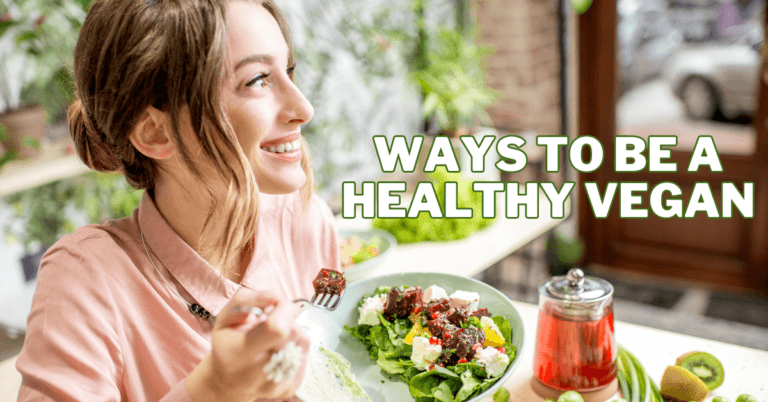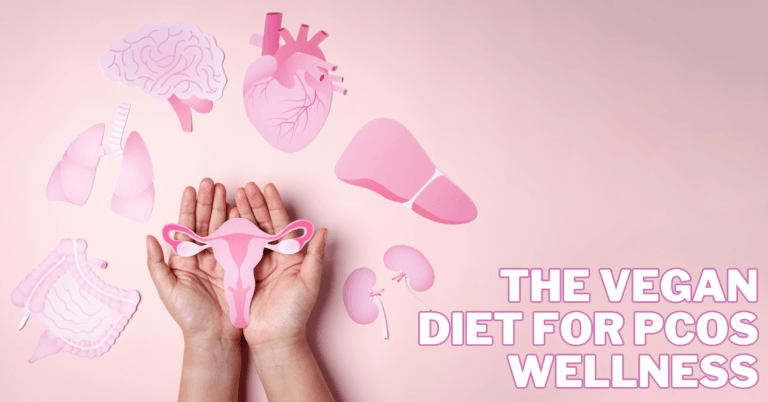Best Vegan Fitness Tips And Workout Routines
Best Vegan Fitness Tips And Workout Routines
In recent years, there has been a significant surge in interest in veganism and plant-based diets due to their numerous health and environmental benefits.
As more individuals adopt vegan lifestyles, they also seek ways to incorporate their dietary choices into their fitness and workout routines.
Whether you are already a vegan fitness enthusiast or just starting on your vegan journey, this article aims to provide you with valuable tips and effective workout routines tailored to a plant-based lifestyle.
From debunking myths about protein sources to exploring the power of plant-based nutrition in enhancing athletic performance, we will delve into the world of vegan fitness to help you achieve your health and fitness goals while staying true to your ethical values.
So, whether you're a seasoned vegan athlete or a beginner looking to embrace plant-powered fitness, read on to discover the best ways to optimize your workouts and achieve peak performance with a vegan lifestyle.
Vegan Fitness Tips
Veganism has gained significant popularity as a dietary choice and a lifestyle promoting compassion, sustainability, and health.
Embracing a vegan fitness journey offers numerous benefits, from enhanced physical performance to improved overall well-being.
Contrary to the misconception that a plant-based diet may lack essential nutrients, vegan athletes and fitness enthusiasts have demonstrated exceptional strength, endurance, and agility. Here are the tips to follow for fitness as a vegan:
1. Proper Nutrition
Proper nutrition is fundamental to fueling your vegan fitness journey. Adopting a well-planned plant-based diet can provide all the essential nutrients your body requires to excel in your workouts and optimize recovery.
Emphasize various plant-based foods, including protein-rich sources such as legumes, tofu, tempeh, and plant-based protein powders. Incorporate nuts, seeds, and whole grains to obtain healthy fats and sustained energy for your physical activities.
To ensure adequate iron intake, include dark leafy greens, lentils, and fortified cereals in your meals.
Calcium can be obtained from fortified plant-based milk, tofu, and leafy greens. Since vitamin B12 is primarily found in animal products, consider fortified foods or supplements to meet your daily needs.
Lastly, include omega-3 fatty acids from chia seeds, flaxseeds, and walnuts to support cardiovascular health and reduce inflammation.
A well-rounded plant-based diet will fuel your workouts and promote overall health and vitality on your vegan fitness journey.
2. Plant-Based Protein Sources
Plant-based diets are abundant in protein sources that can effectively fuel a vegan fitness journey.
Lentils, chickpeas, and quinoa are excellent plant-based protein sources, offering a combination of amino acids essential for muscle development and repair.
Soy products, such as tofu and tempeh, provide a complete protein profile and are versatile ingredients in various dishes.
Seitan, made from wheat gluten, is another high-protein option often used in vegan meals and can be an excellent meat substitute in savoury dishes.
Incorporating hemp seeds into your diet can elevate protein intake while delivering essential omega-3 fatty acids for convenience.
Additionally, vegan protein powders made from peas, rice, hemp, or soy are readily available and can be easily incorporated into shakes or smoothies for a quick post-workout protein fix.
These powders offer a complete amino acid profile, making them an efficient way to boost protein intake, especially after intense workouts when muscle recovery is vital.
2. Hydration
Hydration is a crucial aspect of any fitness regimen and holds particular importance in vegan fitness.
Proper hydration ensures your body functions optimally during workouts, aids digestion, and supports nutrient absorption.
As a vegan, you may consume a diet rich in fiber from fruits, vegetables, and whole grains, which can promote bowel regularity but also requires adequate hydration to prevent digestive discomfort.
Drink plenty of water throughout the day to maintain optimal performance and avoid dehydration.
Before starting your workout, ensure you are well-hydrated by drinking water beforehand. Take sips of water regularly during your exercise session, especially if engaging in high-intensity or endurance activities.
Listen to your body and drink when you need to stay refreshed. After your workout, replenish your fluids to support recovery and help your body recover from physical exertion.
In addition to water, consider consuming hydrating foods like watermelon, cucumbers, and oranges, which contain high water content.
Coconut water is another excellent option, as it provides electrolytes that aid in rehydration after intense workouts.
Staying properly hydrated will boost your vegan fitness performance and promote overall health and well-being.
3. Pre-Workout Fuel
Pre-Workout Fuel is essential for vegan fitness enthusiasts to maximize their performance and make the most of their workouts.
Prioritize a balanced meal or snack that combines carbohydrates and protein, as this dynamic duo provides the energy required for optimal exercise performance and supports muscle recovery post-workout.
Carbohydrates are the primary source of fuel for your muscles during exercise. They are broken down into glucose, which provides readily available energy for your body to use during physical activity.
Opt for complex carbohydrates like whole grains, fruits, and vegetables, which release energy slowly and sustain you throughout your workout. Avoid refined sugars and processed foods, as they can lead to energy crashes.
Additionally, incorporate plant-based protein sources into your pre-workout meal or snack.
Protein helps repair and rebuild muscle tissue after exercise, which is crucial for vegan fitness enthusiasts who rely on plant-based sources to meet their protein needs.
Consider incorporating protein-rich foods such as lentils, tofu, chickpeas, or a vegan protein shake made with pea, rice, or hemp protein powder.
Experiment with different pre-workout meals and snacks to find what works best for your body.
Some options include a quinoa salad with mixed vegetables and tofu, a smoothie made with banana, almond milk, and protein powder, or a peanut butter sandwich on whole-grain bread.
Remember to stay hydrated, sipping water before and during your workout to optimize your performance and keep your body functioning at its best.
4. Post-Workout Recovery
Post-workout recovery is a crucial aspect of vegan fitness that helps optimize muscle repair and growth.
After intense workouts, it's essential to refuel your body with a balanced mix of carbohydrates and protein within an hour to replenish glycogen stores and aid in muscle recovery.
Carbohydrates are vital in post-workout nutrition as they help restore muscle glycogen levels.
Glycogen is the primary fuel source used during exercise, and replenishing it after a workout is essential for promoting recovery and preventing fatigue.
Opt for complex carbohydrates like sweet potatoes, quinoa, or whole-grain pasta to provide a steady release of energy to your body.
In addition to carbohydrates, protein is crucial for repairing and building muscle tissue after exercise.
Plant-based protein sources like lentils, beans, tofu, or a vegan protein shake made with peas or hemp can meet your protein needs.
The amino acids in protein help repair the microscopic muscle damage during exercise, promoting muscle growth and overall recovery.
Hydration is also vital post-workout to replace fluids lost through sweat and support overall recovery. Consider drinking plenty of water and consuming hydrating foods like watermelon or cucumber.
5. Supplement Wisely
Supplementing wisely ensures optimal health and performance in vegan fitness. While a well-planned vegan diet can provide essential nutrients, some individuals may benefit from specific supplements to address potential nutrient gaps.
Vitamin B12 is a crucial nutrient primarily found in animal products, and vegans may have a higher risk of deficiency.
Supplementing with vitamin B12 is recommended for vegans to support proper nerve function, red blood cell production, and overall energy levels.
Vitamin D is another nutrient that may require supplementation, especially for individuals who have limited sun exposure or live in areas with little sunlight. For strong bones, a healthy immune system, and general well-being, vitamin D is crucial.
Fish is a frequent source of omega-3 fatty acids, especially the long-chain EPA and DHA, making it more difficult to get enough from plant-based sources.
Consider supplementing with algae-based omega-3 supplements derived from algae and provide a vegan-friendly source of these essential fatty acids.
6. Flexibility And Variety
Flexibility and variety are essential to a successful vegan fitness journey. Embracing a diverse range of plant-based foods allows you to reap the benefits of various nutrients and ensures you meet your body's needs for sustained energy and overall health.
Incorporate a wide array of fruits, vegetables, whole grains, legumes, nuts, and seeds into your meals to provide a rich source of vitamins, minerals, and antioxidants.
Experiment with different recipes, cuisines, and food combinations to keep your meals exciting and enjoyable, preventing mealtime monotony and promoting adherence to your vegan diet.
Incorporate seasonal produce and regularly try new vegetables and grains to expand your palate and discover new favourites.
Opt for colourful plates filled with various fruits and vegetables, as each colour represents unique health-promoting compounds.
Additionally, explore vegan alternatives for familiar animal-based products, such as dairy-free milk, plant-based yogurt, and meat substitutes, which can add novelty and excitement to your meals.
Vegan Workout Routines
Creating effective vegan workout routines involves tailoring exercises to meet individual fitness goals while ensuring that the body receives adequate nourishment from plant-based sources.
Here are some key points and details to consider when designing vegan workout routines:
1. Set Clear Goals
Setting clear goals is the foundation of any effective workout routine, and this holds for vegan fitness enthusiasts.
You can tailor your workouts by identifying specific fitness objectives, such as building strength, improving cardiovascular endurance, increasing flexibility, or achieving a well-rounded approach.
For instance, if you aim to build strength, incorporating resistance exercises like bodyweight workouts, weightlifting, or resistance band training becomes essential.
On the other hand, focusing on cardiovascular endurance might involve running, cycling, or engaging in high-intensity interval training (HIIT).
Defining your goals helps you stay motivated and track your progress and make necessary adjustments to your routine as you work towards achieving the desired results.
2. Warm-Up And Cool-Down
To achieve your best results and lower your chance of injury, you must include warm-up and cool-down exercises in your vegan workout routine.
Take five to ten minutes to gradually warm up your muscles before beginning the major exercises by engaging in dynamic stretches and light cardio exercises like jacks or jogging.
This will increase your heart rate. It also helps you mentally prepare for the impending workout and improves blood flow and joint mobility.
After completing the main portion of your workout, dedicate another 5-10 minutes to cooling down with static stretches and gentle movements to lower your heart rate and promote muscle recovery gradually.
Cool-down exercises enhance flexibility, reduce muscle soreness, and provide a sense of relaxation after the workout.
Incorporating proper warm-up and cool-down routines into your workout regimen allows you to optimize your training sessions and maintain overall fitness safely and effectively.
3. Strength Training
Strength training is a fundamental component of a well-rounded vegan workout routine, as it helps build lean muscle mass, increase metabolism, and enhance overall body strength.
Incorporating various resistance exercises is key to targeting different muscle groups and promoting functional fitness.
Bodyweight exercises like push-ups, pull-ups, and planks can be effective for beginners or those without access to equipment.
As you progress, incorporating dumbbells, resistance bands, or kettlebells can add extra challenge and variety to your workouts.
Compound movements, such as squats, deadlifts, lunges, and bench presses, engage multiple muscle groups simultaneously, making them highly efficient for maximizing muscle development and boosting strength.
Aim for 2-3 weekly strength training sessions, allowing adequate rest and recovery between sessions.
Adjust the intensity and resistance level to suit your fitness level and gradually increase the challenge as you become stronger.
Proper form and technique are essential to prevent injuries, so consider seeking guidance from a fitness professional to perform the exercises correctly and safely.
4. Cardiovascular Exercise
Cardiovascular exercise is an integral part of a vegan workout routine, as it enhances heart health, increases stamina, and aids in weight management.
Running, cycling, swimming, or high-intensity interval training (HIIT) can elevate your heart rate and improve cardiovascular endurance.
Running and cycling offer great options for outdoor enthusiasts, while swimming provides a full-body workout with minimal impact on joints.
HIIT is a quick and efficient approach to burning calories and increasing cardiovascular fitness since it alternates brief bursts of intense activity with rest or lower-intensity periods.
Choose activities you enjoy, as it will make it easier to stay consistent and motivated. Aim for at least 150 minutes of moderate-intensity or 75 minutes of vigorous-intensity cardio per week, distributed across several days.
Remember to warm up before each session and gradually increase the intensity and duration of your workouts to avoid overexertion. Listen to your body and adjust the intensity to match your fitness level and goals.
5. Flexibility And Mobility
Incorporating flexibility and mobility exercises into your vegan workout routine is essential for maintaining joint health, preventing stiffness, and promoting overall body balance.
Practices like yoga and regular stretching routines can significantly enhance your range of motion, reduce the risk of injuries, and aid post-workout recovery.
Yoga, in particular, focuses on gentle stretches, poses, and breathwork that promote flexibility while fostering mental relaxation and stress reduction.
Stretching exercises targeting major muscle groups, such as hamstrings, quadriceps, hips, and shoulders, can improve joint flexibility and alleviate muscle tension.
Aim to include flexibility and mobility sessions at least a few times a week, either as part of your warm-up or cool-down routine or as standalone sessions.
Be consistent with your practice, and gradually progress into deeper stretches over time. Remember to breathe deeply and relax into each stretch, avoiding sudden or jerky movements.
Whether you prefer a dedicated yoga class or a personalized stretching routine, incorporating these exercises will contribute to your overall fitness and well-being.
6. Cross-Training
Cross-training is a valuable addition to your vegan workout routine, as it involves engaging in various exercises and activities targeting different muscle groups and energy systems.
Incorporating activities like swimming, hiking, dancing, or rock climbing alongside your regular workouts can prevent workout plateaus and keep your fitness routine exciting and challenging.
Cross-training helps you avoid overuse injuries by giving certain muscles a rest while others are active and promoting overall physical fitness and versatility.
Additionally, cross-training can be mentally stimulating as you try new activities and break away from the monotony of repetitive workouts.
The variety in cross-training allows you to work on different aspects of fitness, such as endurance, strength, agility, and balance, leading to well-rounded development.
Embrace the opportunities to explore various exercises, classes, and sports, and tailor your cross-training routine to suit your preferences and fitness goals.
The diversity of cross-training will keep you motivated and committed to maintaining an active and fulfilling vegan fitness lifestyle.
Conclusion
Adopting a vegan lifestyle and integrating fitness into your daily routine can lead to a healthier and more fulfilling life.
Focusing on proper nutrition, hydration, and supplementing wisely ensures your body receives all the essential nutrients needed to support your workouts and overall well-being.
Remember to set clear fitness goals and design a workout routine that suits your preferences and objectives.
Vegan fitness offers numerous benefits, not only for your physical health but also for your mental well-being, environmental consciousness, and ethical considerations.
By staying committed to your vegan fitness journey and continuously challenging yourself, you can achieve and maintain a strong, healthy, and vibrant body while positively impacting the planet.
Stay consistent, stay motivated, and enjoy the rewards of a plant-powered fitness lifestyle.
I trust you enjoyed this article about the Best Vegan Fitness Tips And Workout Routines. Please stay tuned for more blog posts to come shortly. Take care!
JeannetteZ
>>>Please click here to read my Vegan Travel Guides To World Destinations<<<
>>>Want To Learn How To Create Delicious, Cruelty-Free, Healthy AND 100% Vegan Meals? Try These Awesome Vegan Cooking Courses With A Free 7-DAY MEMBERSHIP<<<
Your Opinion Is Important To Me
Ideas? Thoughts? Questions? I would love to hear from you. Please leave me your questions, experience, and remarks about the Best Vegan Fitness Tips And Workout Routines article in the comments section below. You can also reach me by email at Jeannette@LivingTheVeganLifestyle.org.
Disclosure
This post may contain affiliate links. I earn from qualifying purchases as an Amazon Associate and other affiliate programs. Please read my full disclosure.
Here are links to some of my favourite articles:
Best Eco-Friendly Cleaning Hacks
What Are Non-Vegan Foods
Potential Health Benefits Of Veganism
Best Vegan Guide To Clothing And Apparel
Best Vegan Detox And Cleansing Diets
Best Vegan Diet For Healthy Glowing Skin
Best Vegan Food Options While Travelling




















